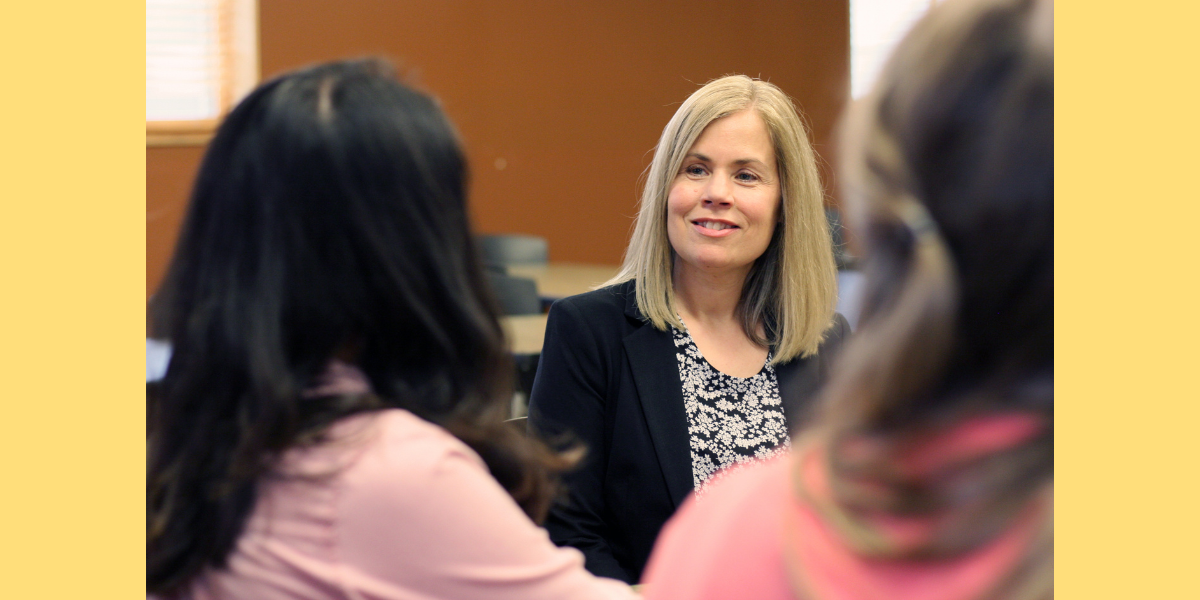Polishing pedagogy
Laura Molgaard aims to roll veterinary education into the future

Laura Molgaard aims to roll veterinary education into the future
Dr. Laura Molgaard speaks with College of Veterinary Medicine students.
After two years of collaborating with colleagues, Dr. Laura Molgaard, then associate dean for Academic and Student Affairs at the University of Minnesota College of Veterinary Medicine (CVM), helped introduce a new framework for competency-based veterinary education (CBVE) at the Association of American Veterinary Medical Colleges’ (AAVMA) annual meeting in March 2018 in Washington, D.C.

The new framework provides a modern, shared, core educational structure for all veterinary graduates, then encourages schools to build on that core for their unique setting. It also sets out to help students know where they stand in their progress, anticipate the expectations for any given competency, and understand what they need to do to be proficient.
Molgaard co-chairs the CBVE working group within AAVMA alongside Jennie Hodgson, PhD, of Virginia-Maryland College of Veterinary Medicine. The working group consists of 10 veterinary education thought leaders from around the globe.
“Most veterinary schools have been slowly traveling down this path for the last 15 years, so it’s not completely new,” Molgaard says. “But this is a turbo boost to those efforts. Rather than each school reinventing the wheel, we are saying let’s work together to develop the best wheel that can roll all of us into the future.”
CBVE prioritizes equipping instructors with tools to help them give specific, constructive feedback to students.
Molgaard also sees CBVE as an opportunity for professional development among faculty and staff. “We want to help them continue their learning journey in competency-based education and to provide resources for curriculum review as well as a toolbox for student assessment,” she says.
The new approach shows promise for improving veterinary medical students’ relationship with learning and veterinary medicine, which could in turn promote mental health. “We have built competencies around clinical decision-making, population health, communication, collaboration, professionalism, professional identity, and scholarship—it is a broad framework of the complete veterinarian, which could contribute to well-being,” Molgaard says.
CBVE aims to promote a growth mindset that can help students understand where they stand in their progression toward competence, and help faculty provide feedback in a way that emphasizes development.
“Instead of telling students, ‘You did not meet expectations,’ we want to be able to tell them, ‘This is where you are, this is where you need to be, and this is how you can get there.’”